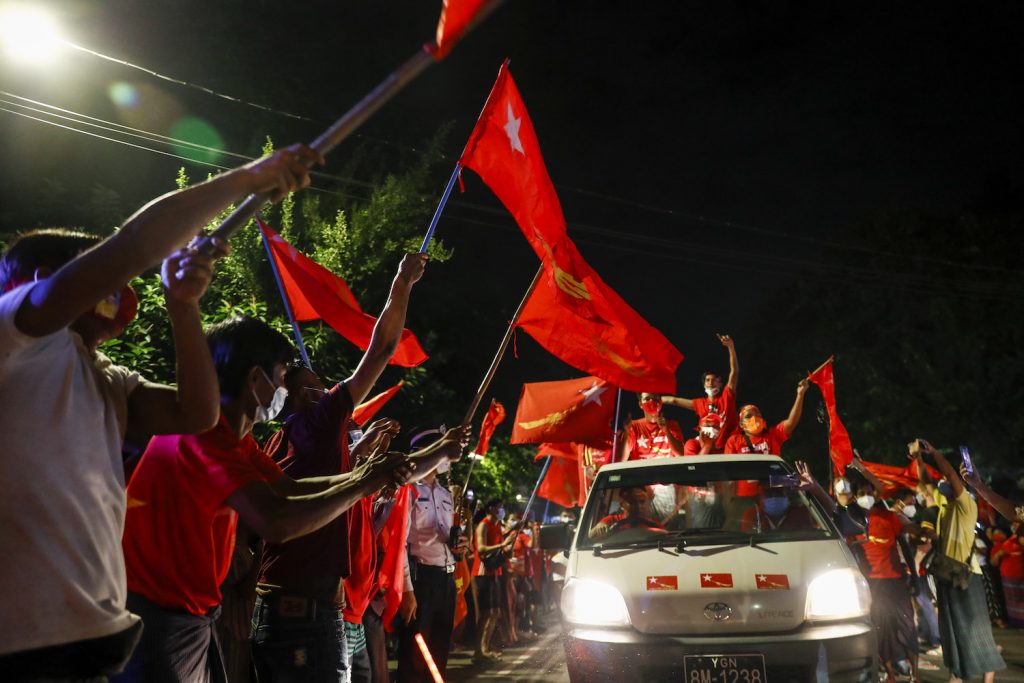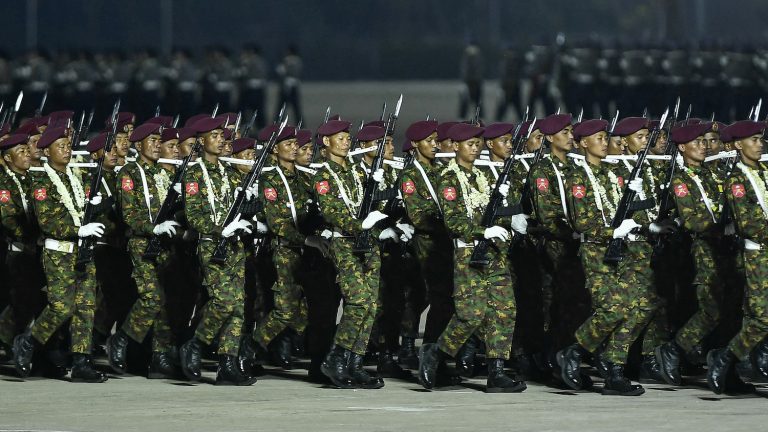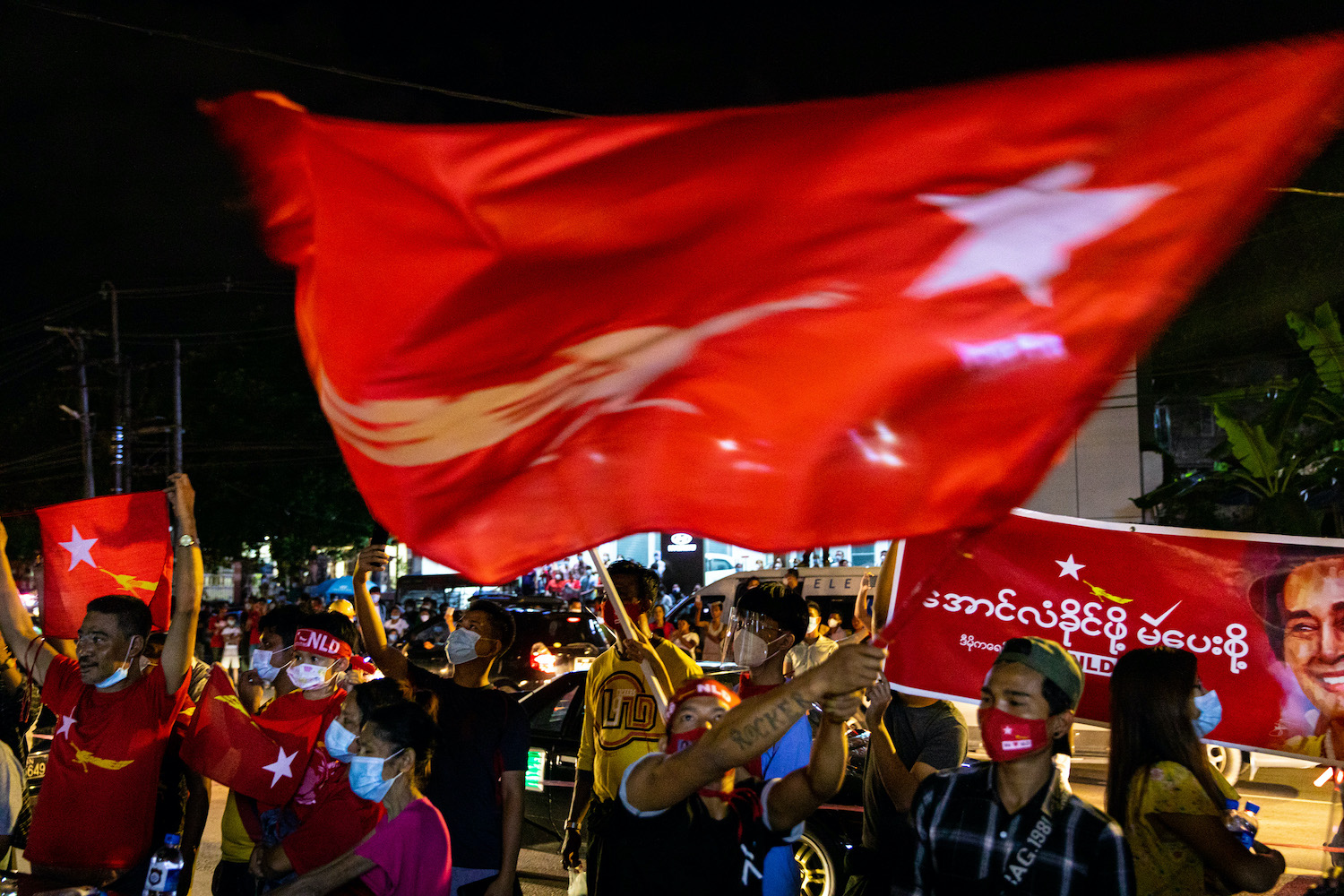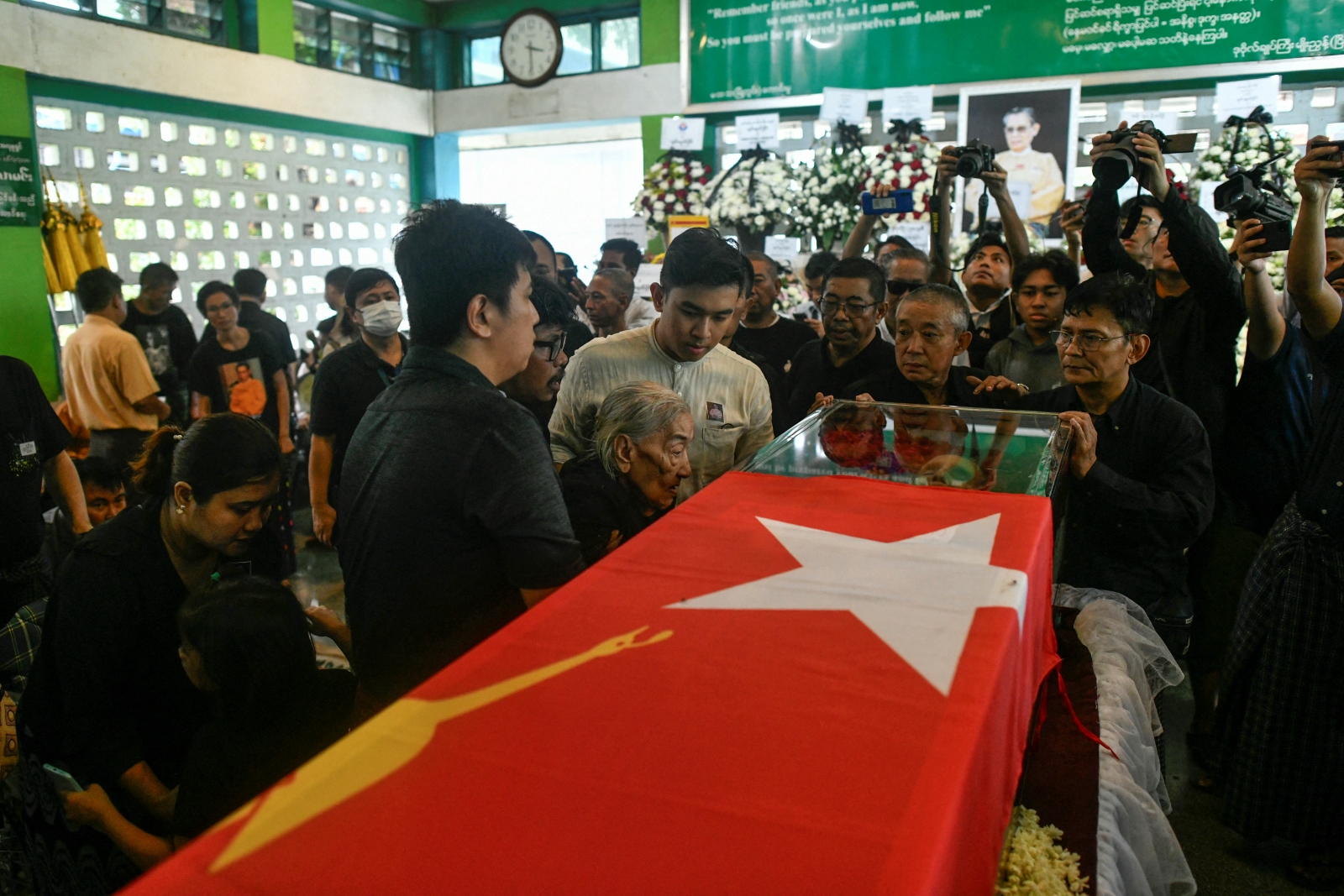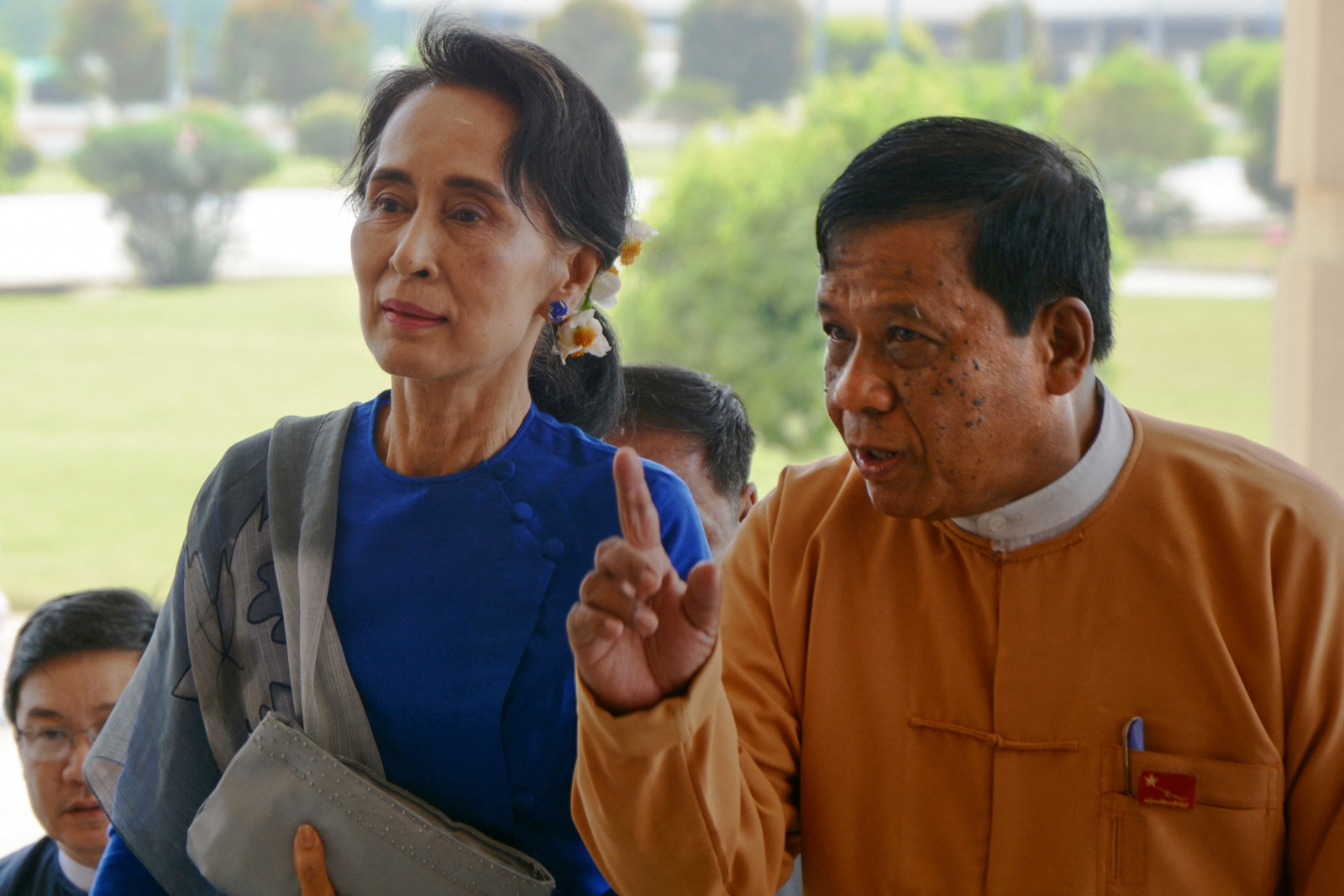A higher-than-expected turnout appears to have put the National League for Democracy on course for a massive victory, including in the ethnic states where newly merged ethnic parties had been tipped to perform well.
By EI EI TOE LWIN | FRONTIER
National League for Democracy officials say the party has won a huge majority in yesterday’s election, and may even eclipse its historic landslide win of five years ago.
Although vote-counting is continuing in many parts of the country and the Union Election Commission has only just started confirming results, the party says it has already secured enough seats to select the president and form government.
The NLD needed 322 seats to gain an absolutely majority in the Pyidaungsu Hluttaw, which will ensure its choice of president wins the Presidential Electoral College and forms the next government. The Pyidaungsu Hluttaw comprises the Pyithu Hluttaw (lower house) and Amyotha Hluttaw (upper house).
NLD spokesperson Dr Myo Nyunt told Frontier this morning that the party’s internal results showed it had already won enough seats to form government, and was just waiting for the UEC to confirm the official results.
The UEC began announcing the first results this evening, but the outcome of the election does not appear to be in any doubt.
“We have won almost every seat in the [Bamar-majority] regions. We are leading in all of the seats where we won in 2015. Based on the figures from our township offices, we can say that we will be able to form government,” Myo Nyunt said.
He said that the party would not file any complaints to the UEC and would face any objections from other parties through the legal process.
Sensing victory was imminent, thousands of NLD supporters gathered outside the party’s Yangon headquarters in Bahan Township on election night, ignoring requests from party officials to disperse.
Even larger crowds have gathered at the Bahan office this evening, with supporters waving flags, holding pictures of State Counsellor Daw Aung San Suu Kyi, and clapping and cheering.
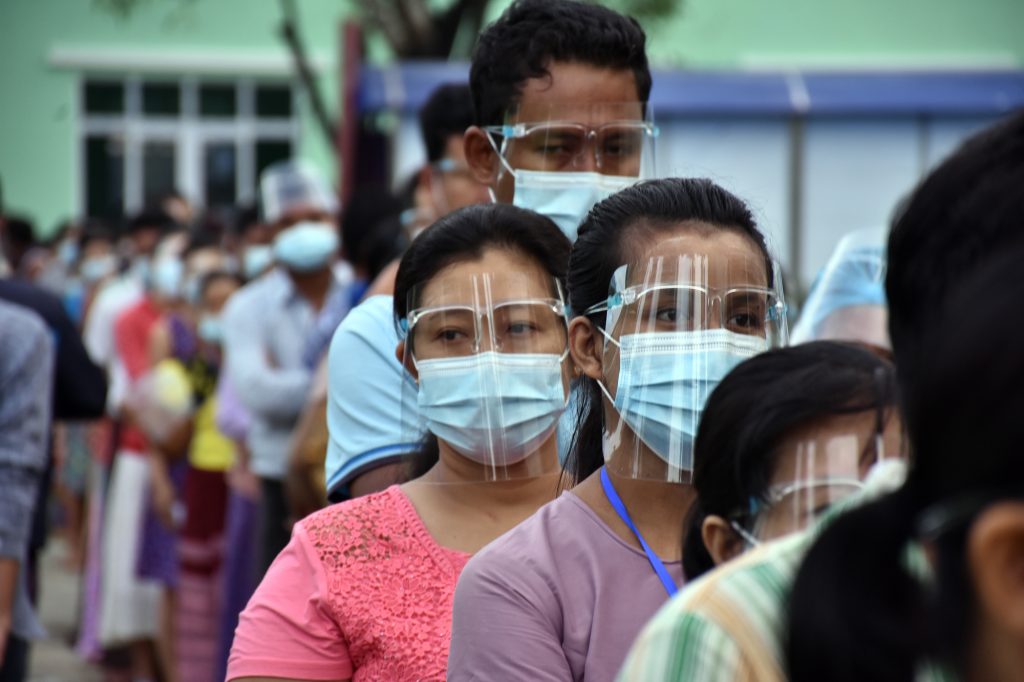
Bigger than 2015
Sources close to the NLD told Frontier the party’s win was likely to be even larger than in 2015, when it won 390 seats in the Pyidaungsu Hluttaw.
“We expect to win more seats than 2015 – that’s our prediction. Votes are still being counted so the situation might change when the final results come out. But it’s quite certain we have won more than 322 seats,” the source said.
U Myo Yan Naung Thein, the executive director of the Bayda Institute, an NLD-affiliated think tank, posted on his Facebook account this morning that the NLD had already won 285 seats out of 291 seats in the seven regions. He said the NLD has a strong chance of winning a further 90 or 100 Union-level seats in the states – far more than it requires for an absolute majority in the Pyidaungsu Hluttaw.
“If we get at least 37 seats from the states, we can form a government,” he wrote.
Prior to the vote the Bayda Institute predicted the NLD would win at least 377 seats in the Pyidaungsu Hluttaw and up to 400 seats – a result that it appears on track to achieve.
The stunning win appears to include victories in a number of seats in Sagaing, Mandalay and Bago regions that the USDP held in 2015.
NLD officials told Frontier they had won every seat in Bago Region, claiming a Pyithu Hluttaw and two regional seats from the USDP in Zigon Township.
The USDP stronghold in southern Mandalay Region – where the townships of Meiktila, Pyawbwe, Yamethin and Thazi are referred to as pyi khaing phyo myo lay myo (“the four USDP towns”) – was also swept away under a surge of support for the NLD.
The USDP has been left with just a handful of seats in Bamar-dominated areas of the country. One of their few victories came in Zayarthiri in Nay Pyi Taw, where party chair U Than Htay held off U Moe Swe from the NLD thanks to strong support from military personnel and their families, who made up about a quarter of the electorate.
High-profile “third force” candidate like U Ko Ko Gyi of the People’s Party and Daw Thet Thet Khine of the People’s Pioneer Party also failed in their bid to win seats, while former parliament speaker U Shwe Mann’s Union Betterment Party also polled poorly.
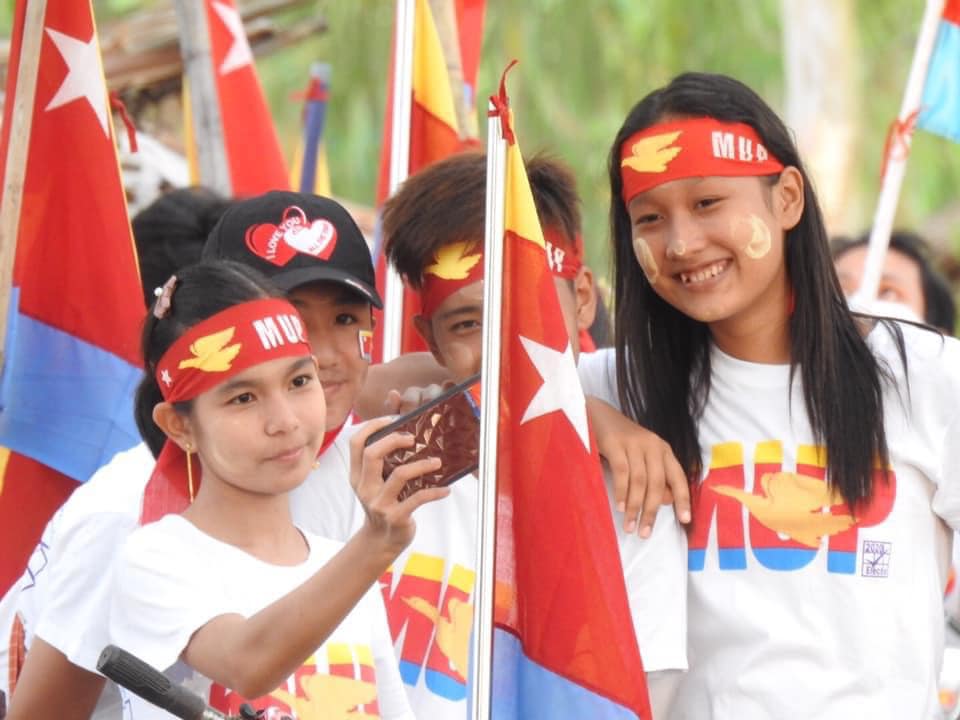
Ethnic parties left disappointed
Just as surprising was the NLD’s performance in the seven ethnic states. Although many results are yet to be confirmed, its support appears to have held up better than expected against stronger competition than in 2015.
Ethnic-based parties, many of which had merged prior to the election in a bid to improve their chances, were mostly left disappointed at the outcome.
In Chin State, the NLD is expected to pick up as many as 36 of the 39 available seats – a big improvement on 2015, when it won 28 seats.
In Kachin and Shan states, early results suggest the NLD performed slightly better than in 2015, although full results are likely to be several days away.
Elsewhere, the NLD lost some seats but fewer than many had expected.
The Mon Unity Party, which had been tipped to perform strongly, won only 11 seats across Mon State, including three in the Amyotha Hluttaw, two in the Pyithu Hluttaw and six in the 31-member state hluttaw, party secretary Nai Layi Tama told Frontier.
This was an improvement on 2015, when Mon parties claimed only four seats, but Nai Min Lat, who ran as an MUP candidate for a state hluttaw seat in Thanbyuzayat, said the party had performed below expectations. “It’s too early to comment on why the results did not meet our expectations,” he said, but added, “we could not do enough campaigning or meet with the public as much as we wanted to because of the COVID-19 pandemic.”
Another ethnic state where the NLD was expected to struggle was Kayah, but the party won 20 of 34 seats in the national and state parliaments.
However, the NLD will only have nine out of 20 seats in the state hluttaw, and the Kayah State Democratic Party (three seats) is expected to work with the USDP (three seats) and military (five seats) to appoint the speaker. The chief minister, however, can still be appointed from Nay Pyi Taw by the president, who will almost certainly be from the NLD.
The exception was in conflict-hit Rakhine State, where ethnic Rakhine parties performed strongly despitevoting having been cancelled in many of the areas where their support is highest.
Although official results have not been released, the Arakan National Party and the Arakan Front Party are together expected to hold nine out of 20 seats in the state hluttaw, including military appointees, and as in Kayah State could work with the military and USDP to appoint the speaker.
The ANP managed to win several seats from the NLD, including in Taungup and Munaung, though the NLD was able to keep its seats in Gwa and Thandwe in the far south of the state.
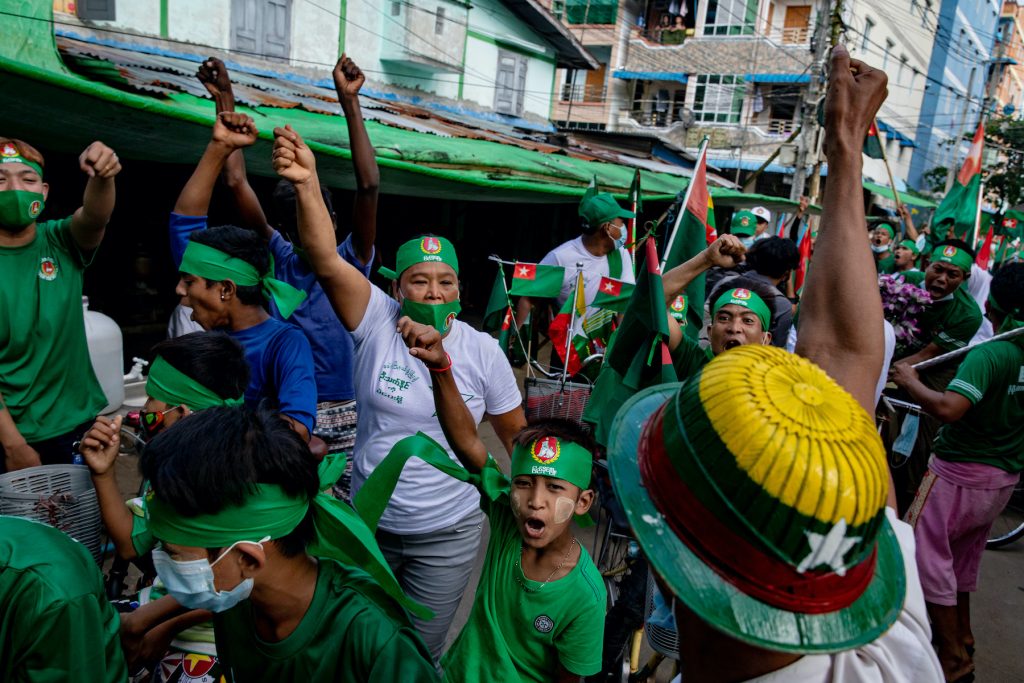
The taint of the Tatmadaw
Local analysts expressed surprise at the size of both the visibly high turnout and the NLD’s landslide win, and said the victory showed that anything associated with the military remained politically toxic.
“The main point is that people do not want to return to military rule. People don’t trust parties that are affiliated with the military,” said U Khin Zaw Win, director of the Yangon-based Tampadipa Institute, a think tank.
Given its clear roots in the former junta, he said “it will be impossible for the USDP to become a strong opposition party in the future”.
Regarding Ko Ko Gyi and the People’s Party, Khin Zaw Win said they formed the party too late to gain any momentum and their chances were further hit by the COVID-19 outbreak, which made it difficult to campaign.
Prior to the election there were concerns that the pandemic might deter some voters, but these were quickly put to rest when polling stations opened at 6am yesterday across the country to long lines of voters.
It is likely to be weeks until the UEC confirms the official turnout, but preliminary results suggest it is likely to be similar to 2015, when 69 percent of registered voters cast a ballot nationally. In Magway Region, the election sub-commission said turnout there had been close to 79pc, up on 76pc in the 2015 vote.
U Khine Win, executive director of the Sandhi Governance Institute, another local think tank, said events in the week leading up to the vote may have encouraged more people to vote for the NLD.
On November 2, Tatmadaw commander-in-chief Senior General Min Aung Hlaing issued a statement criticising the UECand government over the handling of the election, and he later suggested in a media interview that he might not accept the outcome of the vote. Meanwhile, hardline monk U Wirathu emerged from hiding, also on November 2, apparently in a bid to galvanise nationalist support for the USDP. Khine Win suggested these moves likely backfired, hurting the USDP’s already-slim chances.
“It was like they were urging them to vote [for the NLD] so the military can’t return … [the election outcome] was a clear signal that people do not want dictatorship,” he said.
However, Khine Win said fear of the military was not the only factor that helped the NLD.
He said it was important to consider other reasons why many experts, who had predicted a more modest win for the NLD, had misread the mood at the grassroots.
“When I’ve gone to the countryside, people tell me that roads, hospitals, clinics and schools have all improved,” he said.
“Ordinary people judge a government based on their daily experiences rather than issues like peace and constitutional reform. Another thing is that people know that peace and constitutional reform can only be done by the army.”
Khine Win said some voters may also have decided there was no better option than the NLD, even if they weren’t particularly satisfied with its performance in government.
“Some don’t like NLD but they also don’t want the military and there’s no one else they want to vote for – so in the end they vote for the NLD.” – additional reporting by Ye Mon, Kaung Hset Naing, Naw Betty Han, Pyae Sone Aung and Hein Thar


